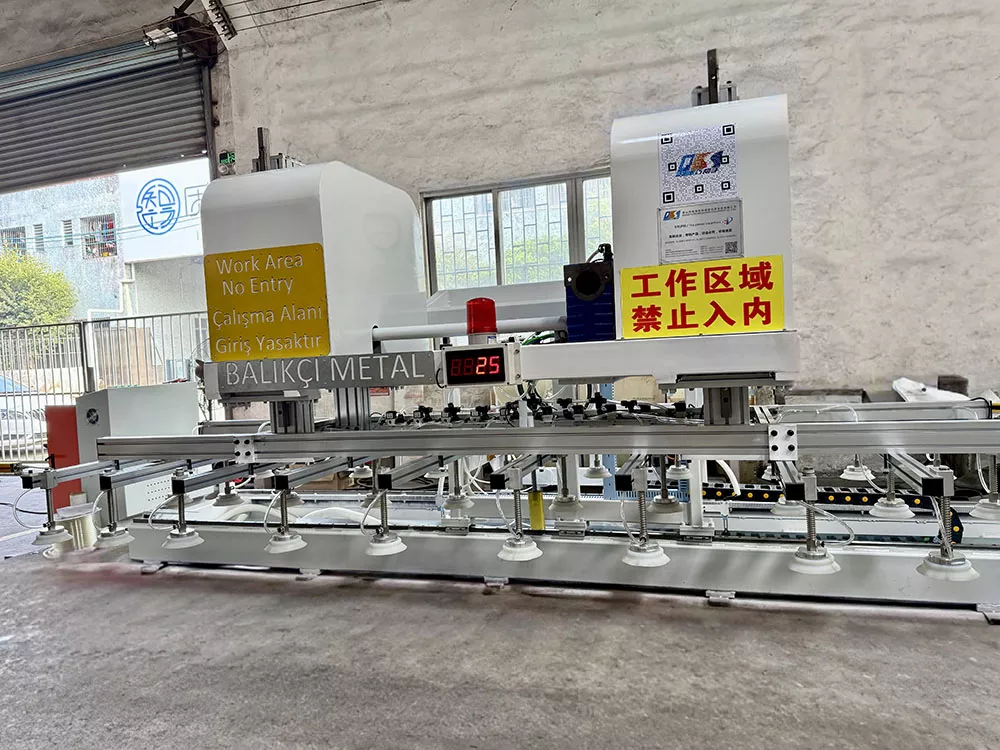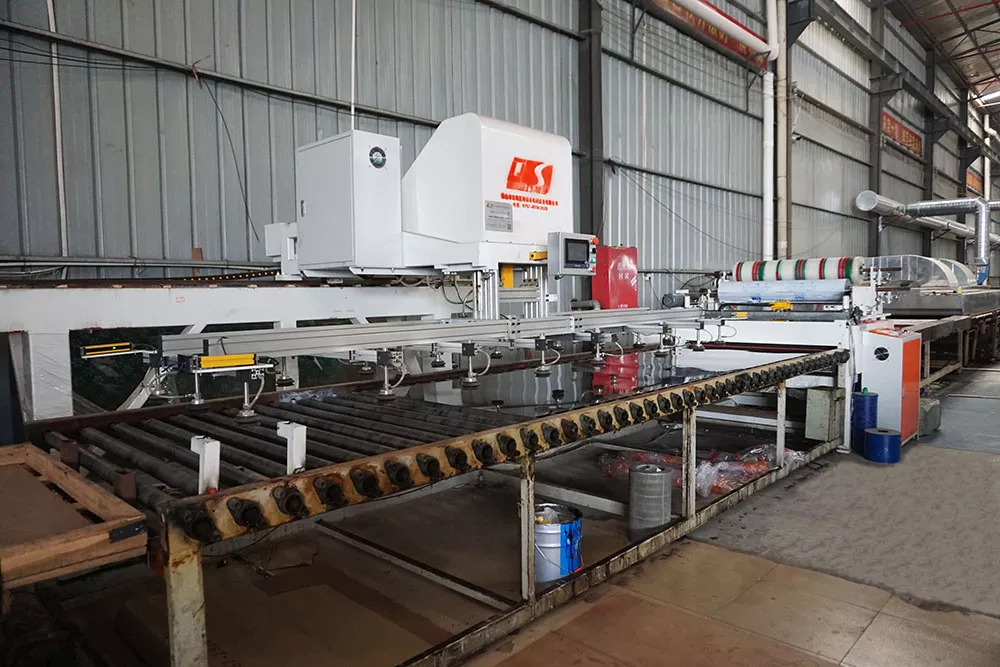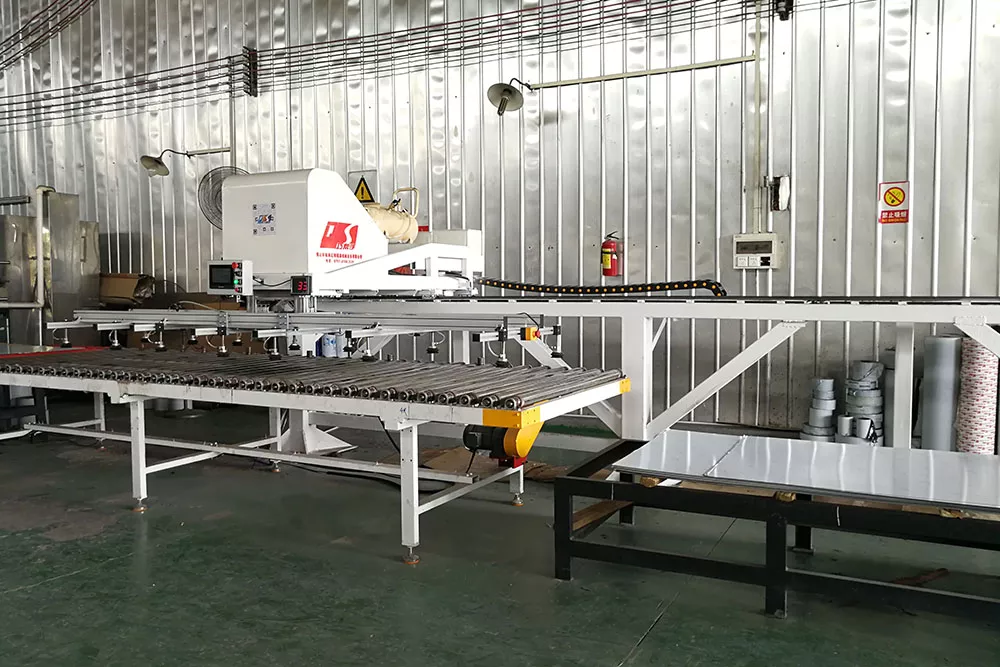How Automatic Plate Handling Machines Boost Efficiency in Metal Sheet Processing?
Automatic Plate Handling Machine in Metal Sheet Processing simplifies tasks by automating the loading, moving, and unloading of metal sheets, eliminating the need for manual labor. These machines deliver precise results with minimal errors, enhancing efficiency and safety in the workplace. By addressing slow processes, the Automatic Plate Handling Machine in Metal Sheet Processing accelerates workflow, reduces costs, and revolutionizes the way metal sheets are handled.
Key Takeaways
· Automatic machines make metal sheet work faster by handling loading, moving, and unloading. They can cut production time by 70%.
· These machines save money by needing fewer workers and wasting less material.
· Automation makes work safer by doing heavy lifting, lowering the chance of injuries and accidents.
Challenges in Traditional Metal Sheet Processing
1.Labor-intensive processes and inefficiencies
Old methods of metal sheet processing depend on manual work. Workers do tasks like loading, placing, and unloading sheets, which take a lot of effort. This slows production and tires workers quickly. Using automation reduces the need for manual work and fixes many problems.
Did you know? Older methods don’t give instant feedback, making it hard to check material properties during production.
This causes delays and missed chances to improve processes.
|
Key Findings |
Description |
|
Older methods don’t check material properties during production, causing inefficiencies. |
|
|
Need for Comprehensive Recording |
Future systems should track material details at every production step. |
|
Potential for Waste Reduction |
Better data use can cut waste and improve production efficiency. |
2.Risks of human error and inconsistent results
Manual work often leads to mistakes. Workers might misplace sheets or press unevenly, causing bad products. These mistakes waste materials and slow production. Automation solves these problems by making sure all parts are high quality.
· Automation lowers mistakes made by people.
· It ensures products are made the same way every time.
· Consistency saves materials and boosts efficiency.
3.Production bottlenecks and time delays
Manual processes can slow things down. Workers can only do one job at a time, which delays the workflow. Breaks or fixing mistakes also cause delays. Automated systems do many tasks at once, speeding up production. This reduces downtime and keeps things moving.
Tip: Automating repeated tasks removes delays and speeds up production.

Plate Handling Equipment
How Automatic Plate Handling Machines Work
1.Key features and technologies in automation
Automatic plate handling machines use smart tools to make work easier. They have sensors, robotic arms, and vacuum systems to move metal sheets. Sensors check the size and position of sheets for proper alignment. Robotic arms with suction cups or magnets lift and place the sheets carefully.
These machines have changed how factories work by speeding up tasks. They connect steps to save over half the time and cut costs. In 2021, factories were expected to get 630,000 robots, up from 381,000 in 2017.
Fun Fact: Machines with linear guideways use direct force for better accuracy.
2.Automation of loading, positioning, and unloading
Automatic Plate Handling Machine in Metal Sheet Processing handles loading, placing, and unloading without much human help. First, steel plates are straightened on a conveyor. A crane with suction cups or magnets lifts the plates safely. Safety hooks stop accidents if something goes wrong.
The crane moves the plates to the workstation and places them precisely. After processing, the plates are unloaded and sent to the next step. For wide plates, suction cups adjust their width for safe handling. For thick plates, magnets change height to protect the lifting tool.
|
Step |
Description |
|
1 |
Steel plates are straightened on a conveyor platform. |
|
2 |
A crane uses suction cups to lift the steel plate. |
|
3 |
Safety hooks keep the plate secure during emergencies. |
|
4 |
The crane moves the plate to the workstation and lowers it. |
|
5 |
Hooks release the plate for the next stage. |
|
6 |
Suction cups adjust for wide plates. |
|
7 |
Magnets adjust height for thick plates. |
|
8 |
Hooks stay active during magnetic lifting. |
This system cuts production time by 70%, making work faster. Magnetic lifters improve efficiency by 95% compared to older methods.
3.Integration with metal sheet processing systems
Automatic Plate Handling Machine in Metal Sheet Processing works well with other machines. It connects to cutting, bending, and welding tools for smooth workflows. This removes the need to move sheets by hand, reducing mistakes and improving quality.
By automating repeated tasks, these machines make production faster and safer. They also lower downtime and improve safety by reducing manual work. The result is a smooth process that creates great products with less waste.
Tip: Automated systems make every product the same, perfect for big factories.

Automatic plate handling equipment
Benefits of Automatic Plate Handling Machine in Metal Sheet Processing
1. Increased productivity and faster processing
Using automatic plate handling machines can greatly increase productivity. These machines make loading, placing, and unloading metal sheets much easier. Unlike people, they work nonstop without needing breaks, speeding up the process. For example, a hospital lab used automation and Lean methods. This helped them finish tasks faster and made workers more productive. They even handled 15% more work while reducing six full-time staff positions.
Automating repeated tasks lets you do more in less time. This helps meet tight deadlines and grow your business without losing quality.
Tip: Automation helps you stay ahead in industries needing speed and accuracy.
2.Reduced labor costs and operational expenses
Paying workers is often a big part of business costs. Automatic plate handling machines lower these costs by needing fewer workers. With fewer people doing repetitive tasks, you can assign them to more important jobs.
These machines also reduce waste by handling materials carefully. Less waste means spending less on materials over time. Plus, automated systems need less fixing than older methods, saving even more money.
· Fewer workers needed, lowering labor costs.
· Careful handling reduces wasted materials.
· Machines need less fixing, cutting maintenance costs.
3.Enhanced safety and reduced workplace injuries
Lifting heavy metal sheets by hand can be risky. Workers might hurt their backs, get cuts, or have accidents from bad lifting. Automatic plate handling machines take over these dangerous tasks.
These machines have safety tools like sensors and emergency stops. For example, safety hooks and suction cups hold metal sheets securely to prevent accidents. By using these machines, you make the workplace safer for everyone.
Note: A safer workplace saves money on injury costs and insurance claims.
4.Improved precision and material consistency
Automation makes sure every product is made the same way. Smart sensors and AI find tiny defects, improving product quality. These tools also ensure exact measurements, so each metal sheet is perfect.
|
Aspect |
Description |
|
Cutting and Welding |
|
|
Assembly and Fastening |
Processes are accurate, lowering errors during assembly. |
|
Material Handling |
Automated systems keep quality high and improve efficiency. |
Automatic plate handling machines help you achieve perfect measurements and consistent materials. This reduces waste and ensures top-quality products.
· Automation lowers mistakes, keeping quality consistent.
· Smart sensors find defects early, making products more reliable.
· Precise tools improve strength and material performance.
Fun Fact: Automated systems find 95% of defects, far better than manual checks.

Steel Sheet Loading Machine
Real-World Applications and Success Stories
1.Case studies of companies using these machines
Many businesses now use automatic plate handling machines to improve work. Reynders, a printing company, had problems with manual plate-making. These old methods slowed work and made plates uneven. To fix this, Reynders bought Esko’s Automatic PlateHandler, CDI Crystal, and XPS Crystal. These tools made their work faster and more organized. They spent less on workers, made better plates, and saved 50% of operator time for other tasks.
Tip: Automating simple tasks lets workers focus on important jobs, boosting productivity.
2.Measurable outcomes like cost savings and efficiency
Companies using these machines save money and work better. A Capgemini report says automation saves $237 billion to $813 billion yearly.
|
Savings Range |
Source |
|
$237 billion – $813 billion |
Capgemini Report |
Other benefits include 70% less time spent on data entry and fewer breakdowns due to better maintenance. Improved data use also reduces downtime, keeping work smooth. These results show how automation improves efficiency and profits.
Note: Automation lowers costs and makes production more reliable.
FOT Machinery’s role in optimizing operations
FOT Machinery helps businesses use automatic plate handling machines easily. Their smart tools make metal sheet processing safer and faster. They offer advanced systems that fit well with current setups. This reduces the need for manual work and improves accuracy.
FOT Machinery provides custom solutions for different needs. Their knowledge helps businesses stay ahead in industries needing speed and precision.
Fun Fact: FOT Machinery’s systems work in many production settings, making them flexible and dependable.
Automatic plate handling machines change how metal sheets are processed. They make work faster, safer, and save money. These machines cut workplace injuries by 30% and reduce insurance costs by 15%. FOT Machinery provides custom solutions to help businesses use these systems. This keeps companies competitive in today’s busy industries.
|
Evidence Type |
Statistic/Fact |
Impact |
|
Workplace Injury Statistics |
20% of injuries happen due to bad lifting or broken tools. |
Shows why safety rules are important for safer metal sheet work. |
|
Accident Reduction |
Following safety rules lowers lifting-related accidents by 30%. |
Proves automatic plate handling machines improve safety during work. |
|
Cost Savings |
Safe practices can cut insurance costs by up to 15%. |
Suggests high upfront costs lead to big savings over time, making automation worth it. |
Tip: Automation improves productivity while creating a safer and cheaper workplace.
FAQ
Which industries gain the most from automatic plate handling machines?
Industries like manufacturing, construction, and automotive benefit a lot. These machines make work faster, cheaper, and keep quality steady.
Are automatic plate handling machines hard to add to current systems?
No, they are built to fit easily. They connect with cutting, bending, and welding tools, making tasks simpler and reducing manual work.
How do these machines make workplaces safer?
They lift heavy sheets and do repeated jobs, lowering injury risks. Safety tools like sensors and emergency stops protect workers even more.
Tip: Using automation increases speed and safety at the same time.

